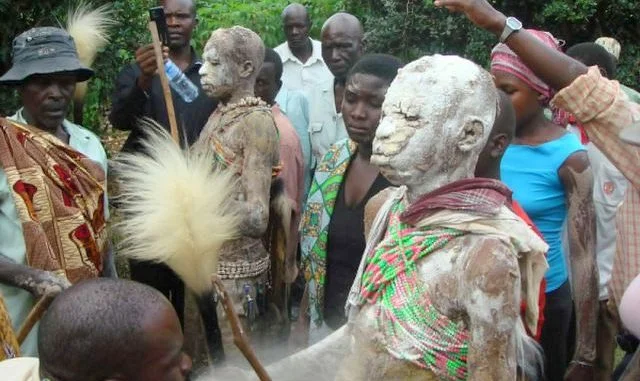Mbale, (UG):- The United Nations Educational, Scientific and Cultural Organization (UNESCO), an affiliate agency of the United Nations Organization (UNO) established in 1945 after the Second World War with various mandates, among which is to help world countries promote and preserve culture, democracy, education, and development, and to promote communication between countries.
UNESCO, so far, has helped various countries around the world ensure that aspects of their cultures and customs are well preserved and protected, such as the Egyptian tombs, the Ahlat stonework a Turkish tradition of shaping volcanic stones into structures and artefacts and the Japanese flute music practice.
UNESCO has 730 intangible cultural elements it is protecting and supporting for various countries globally.
Uganda, as a country, has only six cultural elements recognized and protected by UNESCO, among them the barkcloth making among the Baganda, the Bigwala gourd trumpet music and dance among the Basoga, the Impaako traditional naming ceremony among the Batoro and Banyoro, the Koogere oral traditions of the Banyabwindi and Batoro, and the male child naming ceremonies among the Langis, including the Madi dances.
Mbalu will become the seventh intangible cultural element on the UNESCO list if the efforts of the Bamasaba cultural leadership, led by Umukuka III His Highness Jude Mike Mudoma, bear fruit.
The Bamasaba cultural leadership is currently traversing the entire region of Masabaland, which comprises seven districts, including its diaspora community and the Kenyan chapter, to ensure that our customs of imbalu are protected, as they may soon fade out. This is critical because nearby tribes like the Bateso, Bagwere, and Basoga are beginning to mimic and misrepresent the imbalu customs, which erodes their authenticity.
The imbalu among the Bamasaba people is a biannual rite of male passage into manhood practiced every two years by the Bamasaba people of Uganda and Kenya, numbering over ten million (10M) people based on population estimates for the two countries.
There are two cultural timetables for this ceremony operating in Kenya and Uganda under the leadership of the Bamasaba cultural institution. Non-school-going candidates undergo circumcision in August for about a month, while school-going candidates are circumcised in December.
The imbalu, or traditional male circumcision, is practised willingly by persons aged 18 years and above. It involves a unique incision of the penis, where the foreskin of the male reproductive organ is removed by traditional surgeons who are guided by spirits known locally as kumusambwa (or kyimisambwa in plural). Without guidance from kumusambwa, one cannot circumcise and may end up causing harm.
The evolution of circumcision in the Bamasaba community of Uganda has several theories. The first theory, sexist in nature, involves a woman who required her suitor to be circumcised for marriage, which he complied with around 600 years ago.
Another theory involves a notorious man from Mutoto known for infidelity. The community circumcised him as a way to curb his misconduct; ironically, after healing, he became even more attractive to the women. Eventually, other men in Mutoto decided to circumcise as well, marking the start of widespread circumcision among the Bamasaba.
The third, anthropological theory suggests the Bamasaba copied the practice from Cushitic tribes as they migrated to Uganda about 600 years ago, though the Cushites no longer practice traditional circumcision.
The Bamasaba have practiced traditional circumcision for over 600 years, and their leaders are urging UNESCO to preserve this custom before it is lost. Without preservation, imbalu may soon lose its uniqueness, much like the Cushites, who now rely on modern circumcision practices.
The circumcision process among the Bamasaba involves several preparatory stages, such as planting cultural food crops for those accompanying imbalu candidates, alerting family members (khushebusa), visiting significant relations, engaging in traditional mud-rolling at mutoosi, and participating in dances at Isonja. All of these stages need preservation and protection.
Once the nomination forms are filled out by the Bamasaba cultural leadership and accepted by UNESCO, imbalu, or circumcision of the Bamasaba, will become the seventh intangible cultural heritage item on the UNESCO register.
The UNESCO country representative, Mr. Dan Kaweesi, commended the broad consultation initiatives by Bamasaba cultural leadership to ensure that various clusters and groups within the Bamasaba community are well-informed about the importance of having their customs protected by UNESCO.
The Minister in charge of Museums and Tourism in the Bamasaba cultural institution, Hon. Priscilla Khainza Mungoma, stated that they are traversing various districts of Masabaland to ensure the Bamasaba community understands the dangers of lacking UNESCO protection and the benefits of having imbalu recognized as an intangible cultural heritage. She expressed gratitude to the Uganda UNESCO office and the Ministry of Gender for their guidance.
The imbalu has several cultural benefits. For instance, the Bamasaba frown upon uncircumcised persons, to the extent that children of such persons are forbidden from calling them “Daddy” or “Papa” until they undergo circumcision.
The World Health Organization (WHO), drawing on the Bamasaba culture, has encouraged safe circumcision worldwide as a means to reduce sexually transmitted diseases (STDs) like HIV. Research indicates that HIV rates are lower among the Bamasaba compared to non-circumcising communities.
Circumcision, or imbalu, among the Bamasaba, who number around three million as per the 2024 population census, is a mandatory requirement for all males over 18 years. It aligns with Ugandan municipal law and international customary law.
Recognition from UNESCO provides several benefits, such as international acknowledgement, funding for preservation through sensitization, and intellectual and financial entitlements. Cultural tourism can also bring income to the Bamasaba through the global celebration of imbalu, boosting cultural tourism and museum development in Masabaland.
Do you have a story or an opinion to share? Email us on: [email protected] Or join the Daily Express WhatsApp channel for all the latest news and trends or join the Telegram Channel for the latest updates.



